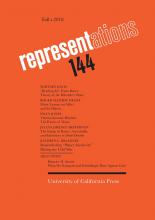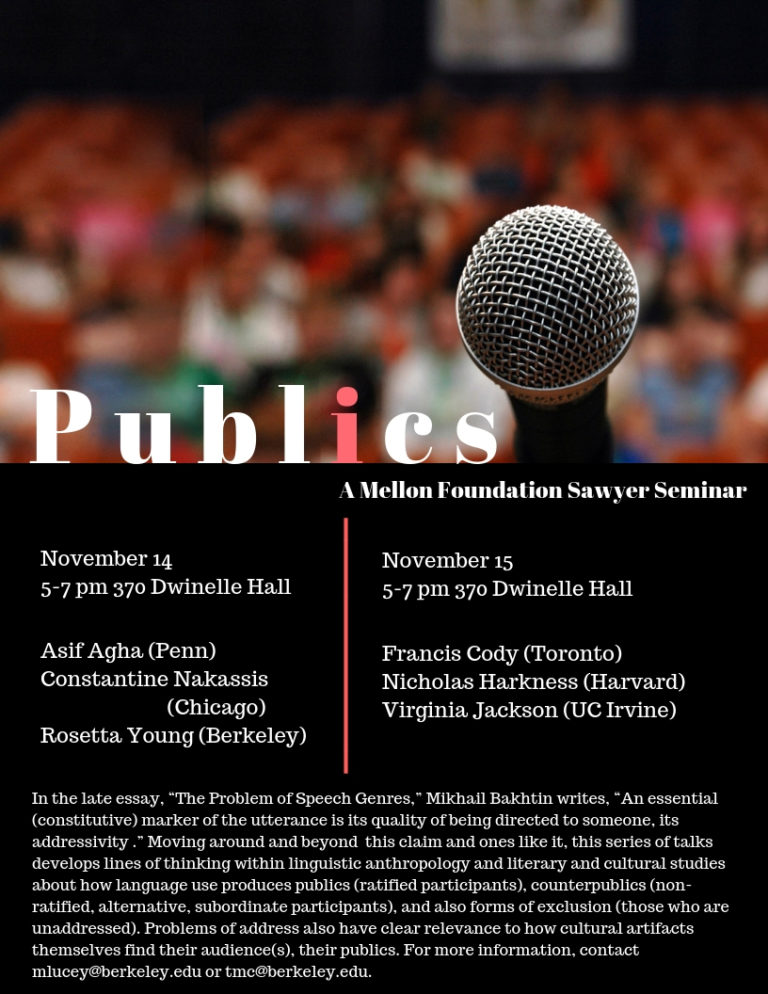NOW AVAILABLE

WHITNEY DAVIS
“Reading-In”: Franz Boas’s Theory of the Beholder’s Share
ROGER MATHEW GRANT
Music Lessons on Affect and Its Objects
EWAN JONES
Thermodynamic Rhythm: The Poetics of Waste
JULIÁN JIMÉNEZ HEFFERNAN
The Stamp of Rarity: Ancestrality and Extinction in Daniel Deronda
KATHRYN L. BRACKNEY
Remembering “Planet Auschwitz” During the Cold War
Plus:
FIELD NOTES
Robert H. Sharf: What Do Nanquan and Schrödinger Have Against Cats?
Upcoming in Representations 145, a special issue, Visual History: The Past in Pictures, edited by Daniela Bleichmar and Vanessa R. Schwartz: Billie Melman on the archaeological site of Ur between the two world wars, Randall Meissen on Francisco Pacheco’s Book of True Portraits, Evonne Levy on eyewitness accounts and the Renaissance media revolution, Allan Doyle on Géricault and the production of visual history, and Aaron Rich on role of the Hollywood “research bible” in creating cinematic recreations of the past. With an introduction by the editors. (Coming in February.)


